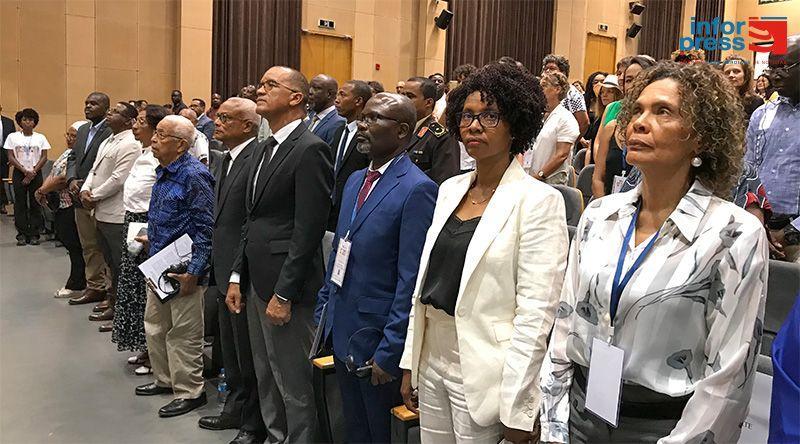Africa-Press – Nigeria. President José Maria Neves (PR) asserted this Wednesday that African cultural and identity diversity should be seen as a strength, not a weakness.
José Maria Neves made these remarks at the opening ceremony of the 6th Biennial Conference of the African Studies Association of Africa – ASAA2025, organized by the University of Cape Verde, which he presided over, under the theme “African Responses to Global Vulnerabilities: Building Hope for the Future.”
The continental event, taking place over three days at the University of Cape Verde (UNI-CV), brings together academics, researchers, artists, policymakers, activists, architects, and filmmakers from various African countries, the diaspora, and the world. It also marks the 50th anniversary of National Independence and the centenary of Amílcar Cabral.
Considering that this will be a space for imagining the future, the nation’s highest judge understands that more than identifying problems, it is important to design solutions and build narratives of hope, valuing history, and recognizing the legacy of heroes like Amílcar Cabral, who taught that the struggle for liberation is also an intellectual struggle.
“African cultural and identity diversity should be seen as a strength, not a weakness,” he reiterated.
On the other hand, highlighting global vulnerabilities such as climate change, prolonged droughts, water scarcity, desertification, among others, José Maria Neves noted that in Cape Verde, the investment in renewable energy, drought-resilient agricultural systems, and environmental protection projects demonstrates that it is possible, even under adverse conditions, to build sustainable and innovative development models.
Furthermore, considering that the global economy, marked by structural inequalities, financial crises, and excessive dependence on external markets, has placed Africa in a situation of great fragility, José Maria Neves emphasized that despite the adversities, Africa has demonstrated a “remarkable” capacity for response.
For him, the future will be all the more promising the more diverse voices can be integrated and social justice promoted.
“We need to build inclusive narratives that promote gender equality, women’s empowerment, the active participation of youth, and respect for local traditions. The interdisciplinary nature of this conference is an example to be followed,” he emphasized.
In this regard, he noted that bringing together experts from the social sciences and humanities with scientists from the fields of technology, engineering, and mathematics creates a “solid foundation” for finding comprehensive and innovative solutions.
“The debates taking place here should inspire public policies, community projects, and cooperation initiatives,” he concluded, urging participants to leverage the shared knowledge and ideas generated throughout these days in their institutions and communities.
“May this conference lead to academic partnerships, research networks, exchange programs, and innovative projects capable of transforming our realities,” he concluded.
For More News And Analysis About Nigeria Follow Africa-Press







